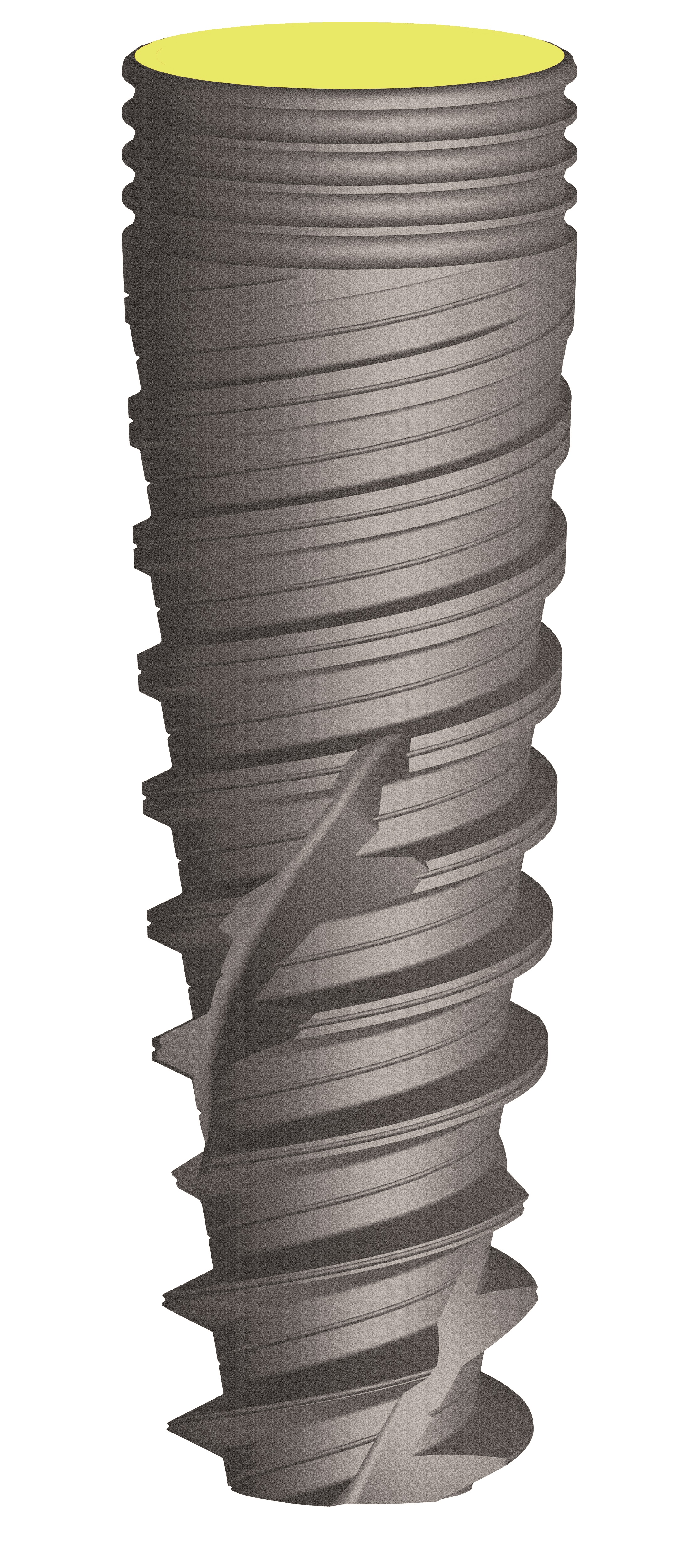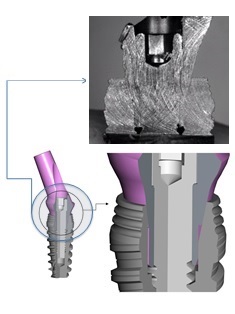Outer structure of the implants
- Compression make
- Double conical shape
- Double micro groove
- Variable width thread tip
- Spiral holes
- Apical cutting edges
- Microgrooves on the neck area
- Outstanding osseointegration
Insertion: The implant’s threading enables orientation during insertion
Implant body design: Due to its double tapered shape the implant compresses the bone structure and ensures outstanding stability
Double mirogrooving: Microgrooves on the tips and trenches of the thread offer extra stability
Polished, coloured face: Enables bacterial locking, while the colour coding speeds up the surgery
Nexus
 Coronal deisgn: Facilitates stability and healing. The micro-grooves provide bacterial locking, whereas the back-tapered top area ensure the maximum level of alveolar bone around the implant
Coronal deisgn: Facilitates stability and healing. The micro-grooves provide bacterial locking, whereas the back-tapered top area ensure the maximum level of alveolar bone around the implant
Double lead thread: Higher pitch, more bone compression
Two-way edges: They compress the bone during inward driving and widen the hole if counterdriven
Apical cutting edges: They help implant orientation during insertion
Varying thread tips: Width of threads increase towards the top of the implant, thus boosting the compression during insertion
BoneTact nano surface: Extremely clean, sandblasted, porotic TiO2 surface, which facilitates osseointegration
| Diameter (mm) | 8 | 10 | 12 | 14 | 16 |
| 3,3 | x | x | x | x | |
| 3,75 | x | x | x | x | x |
| 4,2 | x | x | x | x | x |
| 4,7 | x | x | x | x | x |
| 5,5 | x | x | x | x | x |
Nexus-D

Coronal deisgn: Facilitates stability and healing. The micro-grooves provide bacterial locking, whereas the back-tapered top area ensure the maximum level of alveolar bone around the implant
Single lead thread: Due to the low pitch, it is ideal for insertion into cortical osteotomy
Two-way edges: They compress the bone during inward driving and widen the hole if counterdriven
Apical cutting edges: They help implant orientation during insertion
Varying thread tips: Width of threads increase towards the top of the implant, thus boosting the compression during insertion
BoneTact nano surface: Extremely clean, sandblasted, porotic TiO2 surface, which facilitates osseointegration
| Diameter (mm) | 8 | 10 | 12 | 14 | 16 |
| 3,3 | x | x | x | x | x |
| 3,75 | x | x | x | x | x |
| 4,2 | x | x | x | x | x |
| 4,7 | x | x | x | x | x |
| 5,5 | x | x | x | x | x |
Internal structure
The implant and the abutment are connected by an optimized internal cone. Orientation is ensured by a hexagon under the cone. The connecting screw has a peg ending to block loosening.
-Variable abutments regardless of the implant’s diameter
-Fixation with internal connecting screw
-Precise setting of torque strength (30 Ncm)
-Uniform connecting screw for all sizes


-Decreased rate of micro-movements
-Significant decrase in the possibility of implant loosening



